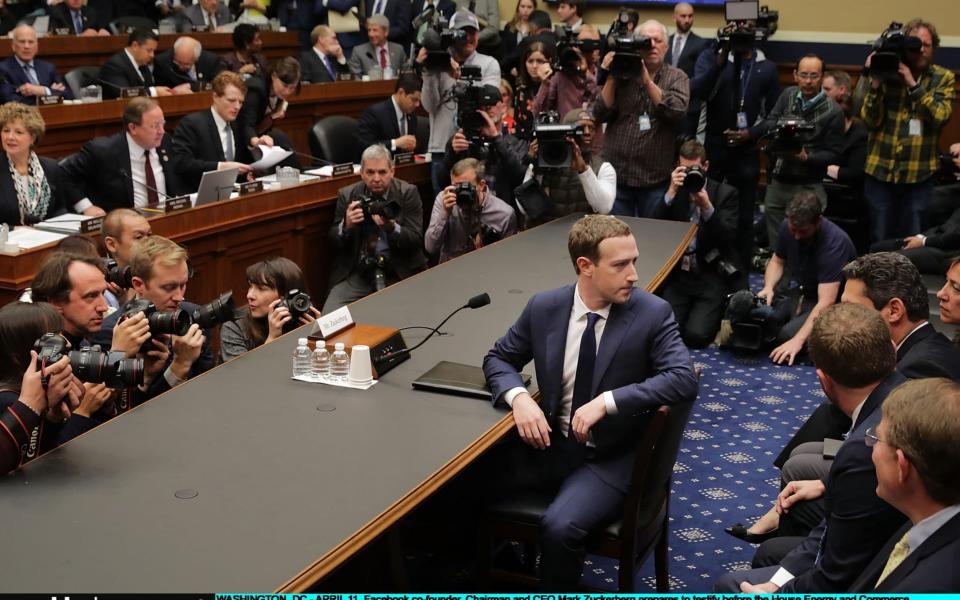Facebook was investigating Cambridge Analytica three months before it originally claimed

Previously secret internal Facebook emails reveal that the company was already aware that Cambridge Analytica was "sketchy" almost three months before the date it originally said it had become aware of wrongdoing.
The emails, released by Facebook with little fanfare on Friday afternoon, show employees discussing and investigating concerns that the now-disgraced data-mining company was breaking Facebook's policies as early as September 2015.
They appear to confirm Facebook's long-held claim that it did not know that users' data had been improperly transferred to Cambridge Analytica until the accusations were first reported by the Guardian in December 2015.
But they also show that Facebook employees were probing the company before that date, as well as being aware of a whole industry of other companies with suspicious data-gathering practices which Facebook does not appear to have ever mentioned before now.
"Facebook was not aware that [data was sold] to Cambridge Analytica until December 2015, wrote Paul Grewal, Facebook's deputy general counsel, in a blog post. "That is a fact that we have testified to under oath, that we have described to our core regulators, and that we stand by today."
Facebook had previously opposed the release of the emails, which are part of a lawsuit by the attorney general of the city of Washington DC. On Friday, however, it said the two sides had reached an agreement to publish the document with employees' names redacted.
The email chain starts on September 22, 2015, when a Facebook employee writes that they have been hearing an increasing number of allegations that various firms have been "scraping" user information from its service and matching them to voter registration files.
"The largest and most aggressive on the conservative side," they write, "[is] Cambridge Analytica, a sketchy (to say the least) data modelling company that has penetrated our market deeply."
They ask for technical help in investigating "what Cambridge Analytica specifically is doing", as well as looking into another company, NationBuilder, which promises to take emails already gathered by its clients and match them to "social engagement activity" from various apps, including Facebook.
The investigation then appears to falter and the discussion moves onto other firms, before the Guardian's story on December 11 prompts a flurry of crisis management emails and a request to "expedite the review of Cambridge Analytica" because "this firm is now a PR issue".
The Telegraph understands that the emails do not feature any high-ranking Facebook executives, and were written by low to mid-level employees.
The emails do not necessarily contradict Mark Zuckerberg's testimony to the US Congress last yearm which said that Facebook first learned that Cambridge Analytica had improperly received user data in December 2015.
The data was originally harvested by another firm, GSR, run by a Cambridge University psychologist called Alekandr Kogan, who used a personality quiz to collect information from millions of Facebook users and then transferred it to Cambridge Analytica for use in political campaigns.
However, Facebook had never mentioned that its employees had any earlier suspicions about Cambridge Analytica until this March, when the emails were quoted in a court filing by the attorney general.
On Friday, Grewal said the suspected "scraping" was a "distinct issue" from GSR's transfer, and that confusing the two "has the potential to mislead people". The former, he said, was a "serious but frequent issue", and proving it would not necessarily have suggested "the scale of the misconduct that Kogan had engaged in".
Facebook's terms of service at the time banned all such transfers of data. The Information Commissioner's Office has ruled that the transfer broke British law, and both British and American regulators have fined Facebook for failing to protect its users' data.
"Facebook argues that data scraping and harvesting were two separate issues, but when US and UK lawmakers asked about this stuff, they rightly expected Facebook to come clean about everything," said Prof David Carroll, an academic in New York City who helped uncover the Cambridge Analytica scandal, on Twitter. "They did not."
A spokesman for the attorney general said: "The District of Columbia fought to make this document public because we believe the American people have a right to know what and when Facebook knew about its data security weaknesses.
“According to the conversations this document contains, Facebook employees were raising alarms about political partners and doubts about their compliance with Facebook’s data policies as far back as September 2015.”
